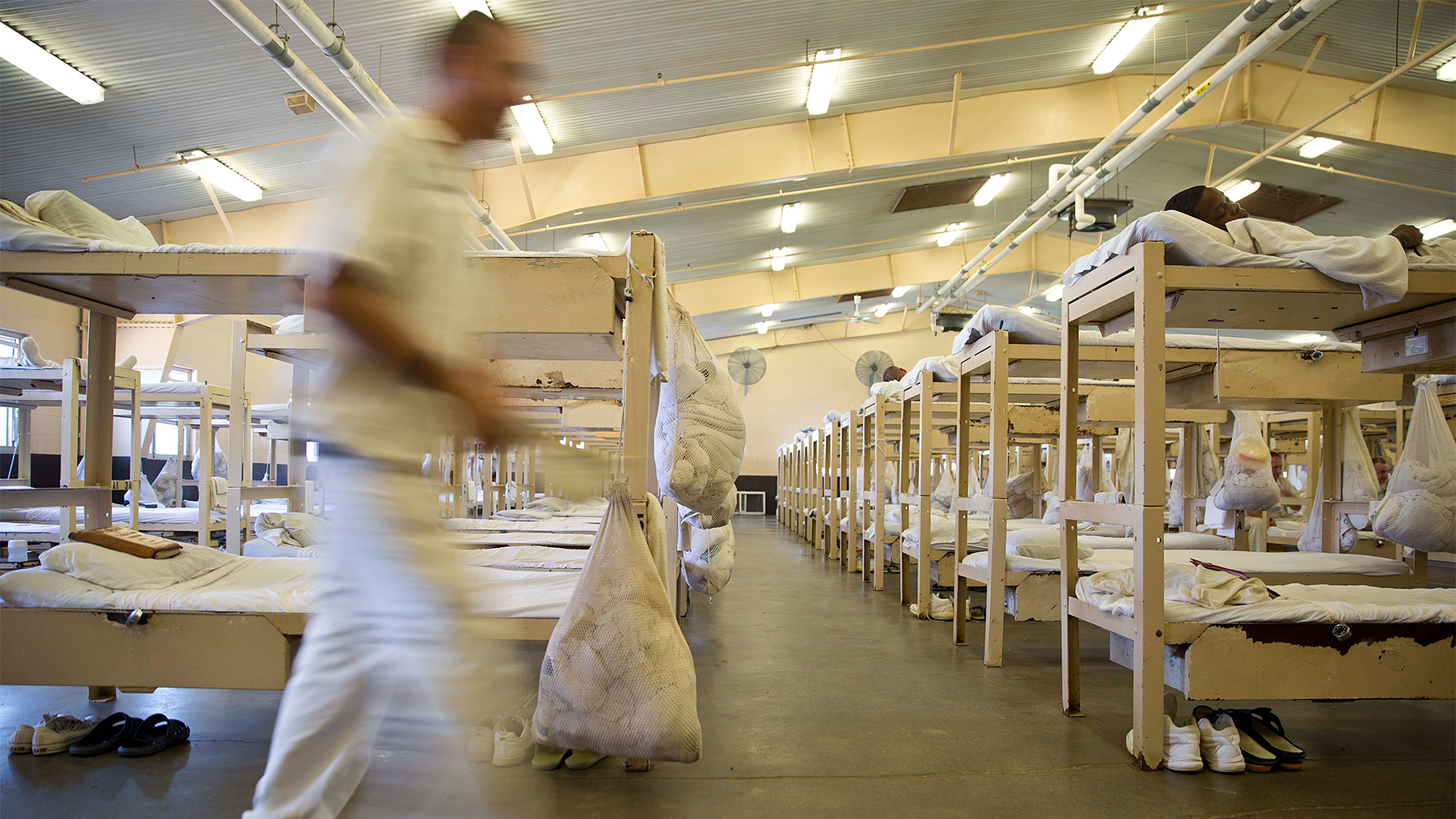Report details shocking violence by corrections officers, systemic failures
The U.S. Department of Justice recently released a report that detailed horrific brutality committed by corrections staff against people incarcerated within Alabama’s prisons.
The report provides disturbing detail about the use of excessive force by corrections staff. One account describes how a corrections officer exclaimed he was “the reaper of death,” as he beat a handcuffed person incarcerated at the Ventress Correctional Facility. The incident was recounted by four nurses at the facility who either heard or saw the beating.
Just this week, the DOJ indicted four corrections officers on excessive force and obstruction of justice charges in the 2018 beating of another incarcerated person at Bibb Correctional Facility in Brent, Alabama.
As shocking as the report may be to some, those of us familiar with the state’s prison system are, sadly, not surprised by these findings. They only confirm what people incarcerated in Alabama’s prisons, their families and advocates have long known: There is a consistent pattern of neglect and blatant disregard for the law in Alabama’s prisons, which are notoriously overcrowded. And, these prisons are understaffed by undertrained correctional officers who are often corrupt and routinely demonstrate a lack of professionalism.
Alabama is a prime example of the dire human toll inflicted by our nation’s broken and racist criminal justice system, which has filled prisons beyond capacity and disproportionately with people of color. As the Prison Policy Initiative has reported, Black people are significantly overrepresented in this country’s prisons and jails: Black people constitute only 13% of U.S. residents but are a staggering 40% of the incarcerated population. What’s more, the overcrowding and underfunding of these facilities has been a recipe for disaster that has cost human lives. The Southern Poverty Law Center (SPLC) has worked throughout the Deep South to bring critical criminal justice reform.
In 2014, the SPLC sued the Alabama Department of Corrections for systemically putting the health and lives of incarcerated people at risk by ignoring their medical and mental health needs and discriminating against those with disabilities. U.S. District Judge Myron Thompson in 2017 declared the mental health care system in Alabama prisons to be “horrendously inadequate” – an unconstitutional failure that has resulted in a “skyrocketing suicide rate” among those who are incarcerated.
The DOJ had previously notified Alabama Gov. Kay Ivey in 2019 about how the state routinely violates the constitutional rights of incarcerated people by failing to protect them from violence and sexual abuse.
Yet, again and again, the Alabama Department of Corrections has shown it is either incapable of or unwilling to ensure the safety of people in its custody – people without the liberty to fight back against an abusive system. People who are taunted, beaten with batons, kicked and assaulted with chemical spray by correctional staff. People who are injured, sometimes killed, by employees of the state of Alabama.
People like Steven Davis, who, in October 2019, was beaten so severely by guards at Donaldson Correctional Facility he died from his injuries. An autopsy showed Davis had numerous skull fractures, broken ribs and internal bleeding. His mother, when recounting his death, described him as unrecognizable.
Too often, such brutality is ignored by public officials.
Some people may argue that those in prison should expect – or even deserve – this kind of treatment. Those people are wrong. As I told The New York Times, when people are in prison, they are not sentenced to going to hell.
All of us have rights afforded to us by the U.S. Constitution. It doesn’t matter what state we live in, what our elected officials say or whether we’re in prison. Being incarcerated does not mean that your Eighth Amendment protections against cruel and unusual punishment disappear. The violence outlined by the DOJ demonstrates deep and persistent failures by the leadership of the Alabama Department of Corrections.
Yet, the “prison reform” that’s touted by state leaders is simply the building of new prisons. Despite what those in charge say, the state’s plan to build larger prisons will not end this violent and unconstitutional behavior.
Our state officials need to reduce the prison population, fix Alabama’s overly punitive sentencing guidelines and stagnant parole system to ensure people are not serving unnecessarily long sentences, and eliminate racial disparities at every level of the criminal justice system. New brick and mortar are not proof of a reformed prison system. It is not proof that the people held within prison walls will be treated humanely and with dignity and respect for their basic human rights.
We must reform the Alabama prison system – and others where such abuse occurs – to ensure incarcerated people are not only seen as human beings, but human beings with constitutional rights that must be respected.
Photo by Brynn Anderson/AP Images



